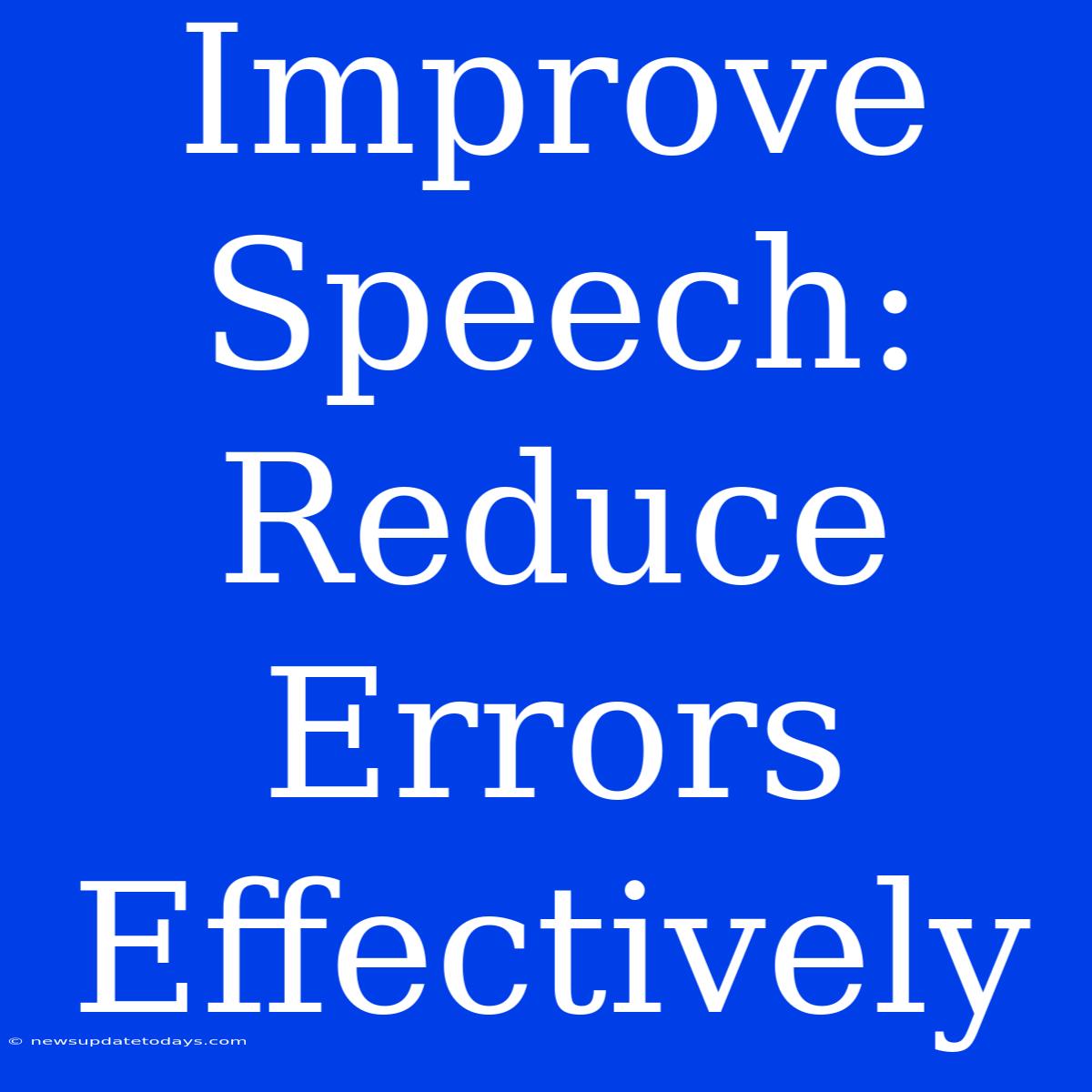Improve Your Speech: Reduce Errors Effectively
Many people struggle with speech errors, whether it's stumbling over words, mispronouncing them, or experiencing unwanted pauses. These errors can impact confidence, communication effectiveness, and even career prospects. But the good news is, you can significantly improve your speech and reduce errors with focused practice and the right strategies. This article will explore effective techniques to help you speak more fluently and confidently.
Understanding the Root of Speech Errors
Before diving into solutions, it's crucial to understand why you make speech errors. Common causes include:
- Nervousness and Anxiety: Public speaking or important conversations can trigger anxiety, leading to increased speech errors.
- Lack of Practice: Like any skill, speaking requires practice. Insufficient practice can result in hesitant speech and frequent mistakes.
- Poor Breathing Techniques: Shallow breathing can restrict your airflow, making it difficult to articulate words smoothly.
- Unclear Articulation: Improper tongue and mouth movements can lead to slurred speech and mispronunciations.
- Cognitive Factors: Processing information quickly and translating it into speech can be challenging, leading to pauses and errors.
Effective Strategies to Reduce Speech Errors
Now let's explore practical strategies to address these issues and improve your speech:
1. Practice, Practice, Practice:
- Regular Speaking: The more you speak, the more comfortable and confident you’ll become. Engage in conversations, give presentations (even to yourself!), and participate in discussions.
- Record Yourself: Recording your speech allows you to identify patterns and areas for improvement. Pay attention to pacing, clarity, and pronunciation.
- Read Aloud: Reading aloud, especially from diverse materials, enhances your vocabulary and improves your fluency.
2. Master Breathing Techniques:
- Diaphragmatic Breathing: Practice deep, belly breathing to improve your lung capacity and airflow. This will provide a steady supply of air for smoother speech.
- Controlled Exhalation: Learn to control your breath as you speak, avoiding rushed or shallow speech.
3. Improve Articulation:
- Tongue Twisters: Practice tongue twisters to improve your mouth and tongue coordination.
- Mirror Practice: Observe your mouth movements in the mirror to identify and correct any inaccuracies.
- Focus on Pronunciation: Pay attention to the pronunciation of individual sounds and words, using resources like dictionaries or pronunciation guides.
4. Manage Nervousness:
- Preparation: Thorough preparation significantly reduces anxiety. Know your material well, practice your delivery, and visualize a successful presentation.
- Relaxation Techniques: Practice relaxation techniques like deep breathing, meditation, or mindfulness exercises before speaking.
- Positive Self-Talk: Encourage yourself and believe in your ability to communicate effectively.
5. Utilize Technology:
- Speech-to-Text Software: This can help you identify errors in your written communication that may also manifest in your spoken language.
- Speech Therapy Apps: Several apps offer exercises and feedback to improve your speech and reduce errors.
6. Seek Professional Help:
If you continue to struggle with significant speech errors, consider consulting a speech-language pathologist. They can provide personalized guidance and support.
Conclusion: Speak with Confidence and Clarity
Improving your speech is a journey, not a destination. Consistent effort, focused practice, and the right techniques will significantly reduce speech errors and boost your confidence. Remember to be patient with yourself, celebrate small victories, and enjoy the process of becoming a more effective and confident communicator. By implementing these strategies, you can unlock your potential for clear, fluent, and compelling speech.

